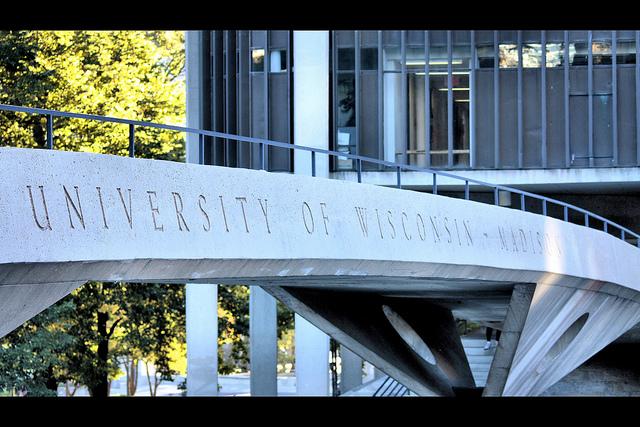Every Tuesday and Thursday, Thongchai Winichakul goes through the same routine.
As he descends the stairs in the George L. Mosse Humanities Building and enters his 11 a.m. class, he gazes upon a lonely sight — rows and rows of empty seats. The room can hold almost 100 students, yet only a few are present and class is about to begin.
Despite the lack of attendance, Winichakul collects his notes and teaches his small cadre of students with passion.
Unfortunately, this has become a recurring theme for many classes such as Winichakul’s in recent years. This section, The History of Southeast Asia to 1800, has less than 10 students, down from around 40 just a few years ago. Winichakul, a leading scholar of Southeast Asian studies, recently began noticing a steady decline in registration for his pre-modern courses. In addition, professor Lee Wandel, an expert in medieval European history, also reported that she had to change courses due to low enrollment numbers.
If current trends continue, Winichakul fears that pre-modern studies, a field which typically has smaller classes and fewer Ph.D. candidates, may be squeezed out entirely.
Both professors’ situations are representative of a much bigger issue at University of Wisconsin and campuses across the country: There is declining interest in the study of humanities subjects.
According to the American Academy of Arts and Sciences, the number of humanities degrees offered at public institutions has declined by 8 percent since 2007, compared to 4 percent at private universities.
Winichakul believes that the recession of 2008 turned many away from humanities, because economic hardship forced people to seek careers with clear money-making potential.
While pursuing a degree in the STEM fields typically does lead to careers with higher incomes, the value of pursuing study in the humanities must not be understated.
Furthermore, Winichakul expressed concerns over the social implications of divestment in the Humanities as a whole.
“The value of humanities cannot be assessed by economic value; it needs to be assessed on the basis of its benefits to learning processes,” Winichakul said. “Society still needs this type of knowledge. It is the intellectual foundation of the society.”
The uneven decline of the humanities in public schools can also be attributed to the rhetoric of politicians like Gov. Scott Walker and the Republican-controlled Legislature. Wisconsin policymakers fail to see the value in this form of education as evidenced by their recent attempts to change the century-old UW mission statement.
As a society, we require some intellectual basis in the humanities in order to progress socially and effectively address the issues in our country.
Since its inception, UW has developed a reputation as an institution committed to developing its students into intellectually well-rounded individuals with critical-thinking skills. A dis-investment in humanities threatens this tradition and would lessen diverse thinking in the workplace.
Christoph Bruning ([email protected]) is a sophomore majoring in journalism and history.














